CBD Oil: The Ultimate Guide to Benefits, Uses, and Wellness
Introduction to CBD Oil
In recent years, the health and wellness industry has been transformed by the rise of natural remedies, and one product has quickly taken center stage—CBD oil. Short for cannabidiol, CBD is a naturally occurring compound found in the cannabis plant. Unlike tetrahydrocannabinol (THC), CBD is non-psychoactive, meaning it does not produce the “high” commonly associated with marijuana. Instead, it has gained global attention for its wide range of potential therapeutic benefits, from easing stress and anxiety to supporting pain relief and better sleep. Read More…
CBD oil is extracted primarily from the hemp variety of the cannabis plant, which contains high levels of CBD and minimal THC. Today, millions of people incorporate CBD oil into their daily routines, making it one of the most popular natural supplements on the market. Whether you are curious about its effects, seeking natural alternatives to manage health concerns, or simply exploring the wellness space, understanding CBD oil is essential.
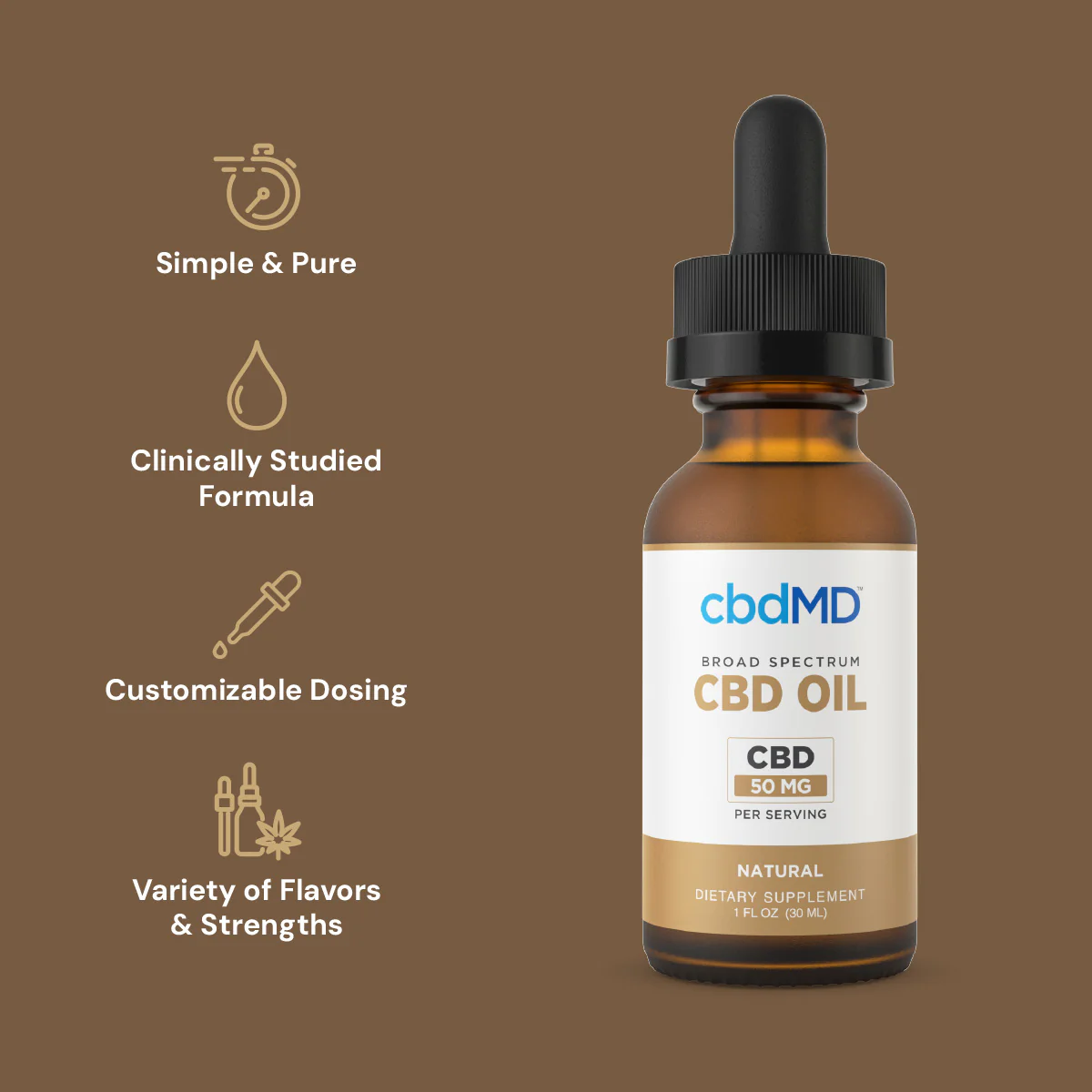
In this comprehensive guide, we will explore everything you need to know about CBD oil—its history, how it works, benefits, uses, safety, legality, and tips on choosing the right product. By the end, you’ll have a clear, well-rounded understanding of this powerful plant extract and its potential role in your health journey.
What is CBD Oil?
CBD oil is a concentrated liquid extract made from hemp or cannabis plants. The oil contains cannabidiol (CBD) as its main active ingredient, which interacts with the body’s endocannabinoid system (ECS)—a network of receptors responsible for maintaining balance in functions such as mood, sleep, appetite, and immune response.
There are several forms of CBD oil available on the market:
-
Full-Spectrum CBD Oil: Contains CBD along with other cannabinoids, terpenes, and trace amounts of THC (below 0.3%). This type often produces the “entourage effect,” where compounds work synergistically for enhanced benefits.
-
Broad-Spectrum CBD Oil: Includes CBD and other cannabinoids and terpenes, but no THC. Ideal for individuals who want the benefits of multiple compounds without any psychoactive effects.
-
CBD Isolate: Pure CBD with no other cannabinoids or plant compounds. This is best for people who want CBD only, with zero THC.
The oil is usually mixed with a carrier oil like coconut oil (MCT), hemp seed oil, or olive oil to improve absorption and usability.
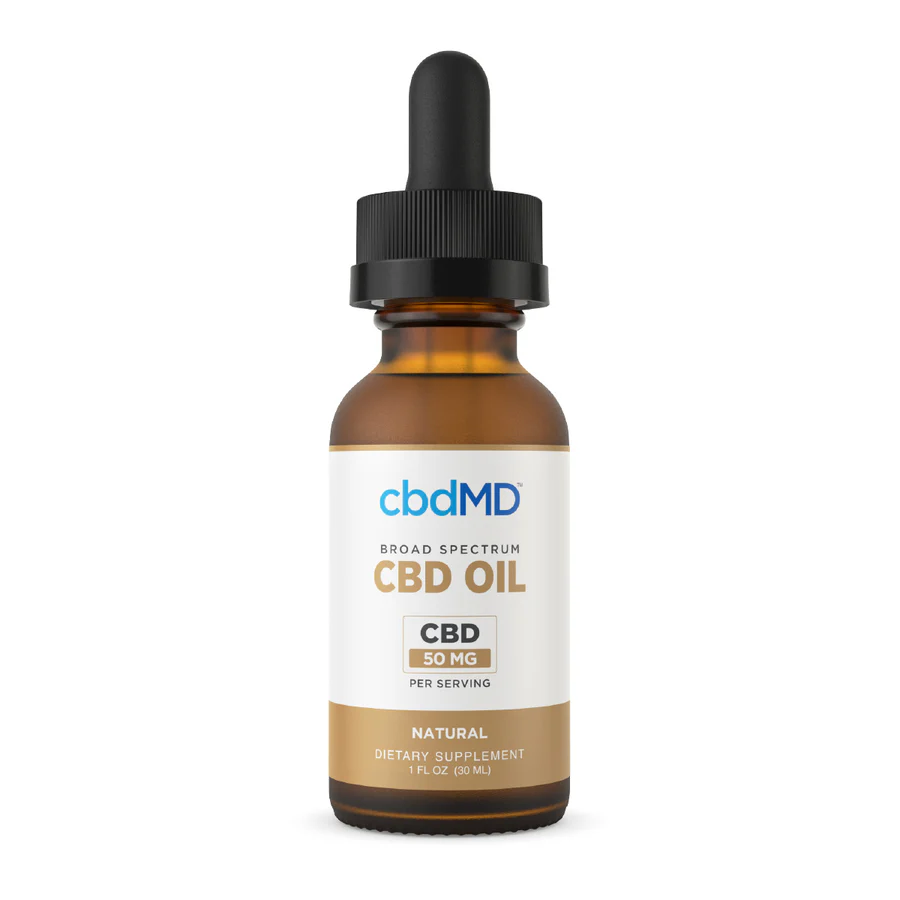
The History of CBD Oil
Cannabis has been used for medicinal purposes for thousands of years. Ancient civilizations, including the Chinese and Egyptians, relied on hemp and cannabis for pain relief, spiritual rituals, and general wellness. However, the modern understanding of CBD began in the 1940s when Dr. Roger Adams successfully isolated cannabidiol from the cannabis plant.
In the decades that followed, researchers discovered the endocannabinoid system (ECS), unlocking the connection between CBD and the body’s internal regulation mechanisms. With the legalization of hemp-derived products in many countries, CBD oil surged in popularity, becoming a mainstream wellness supplement. Today, CBD oil is embraced globally for its natural healing potential, supported by ongoing research and personal testimonials.
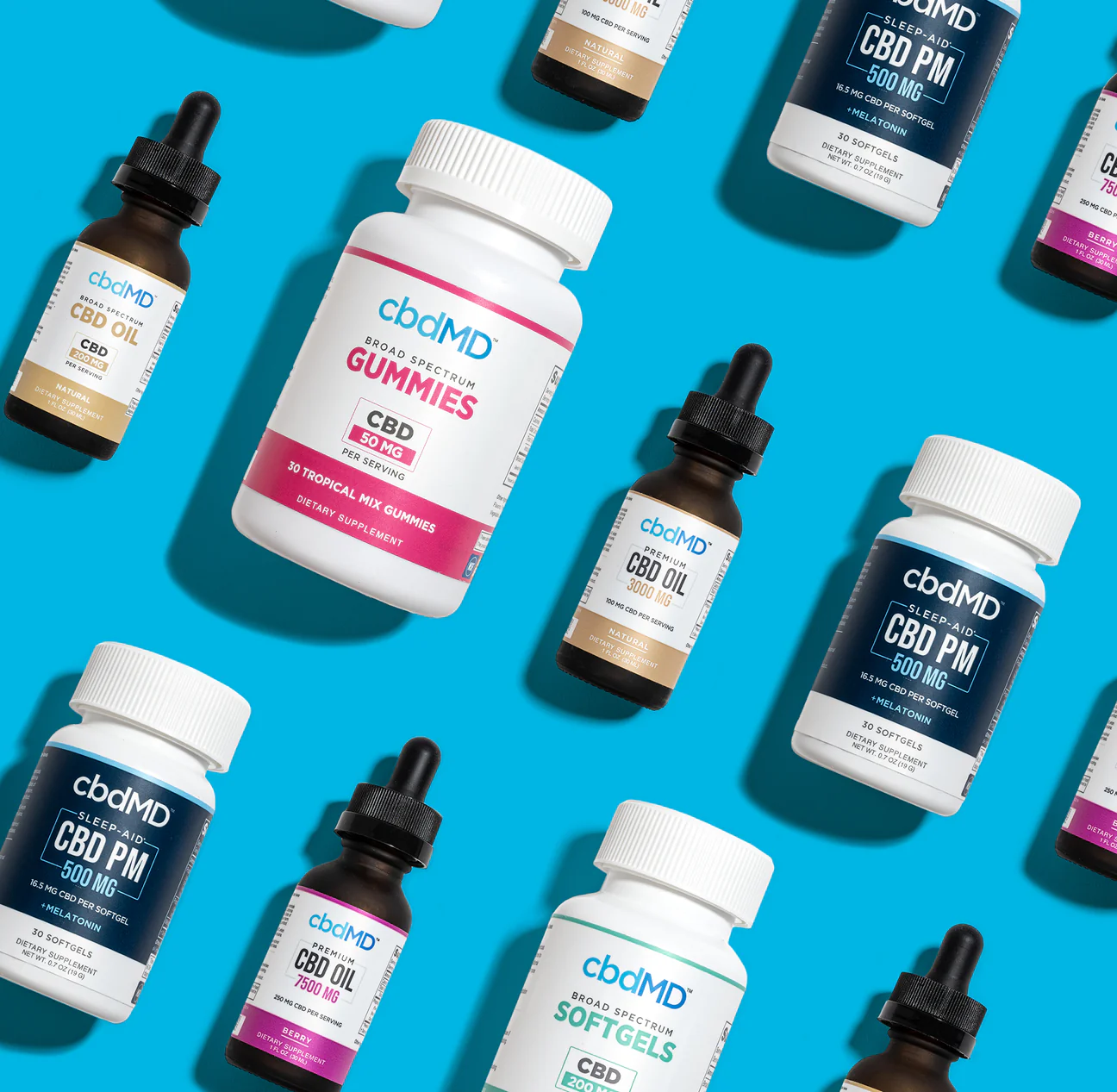
How CBD Oil Works in the Body
The effectiveness of CBD oil lies in its interaction with the endocannabinoid system (ECS), a vital biological network discovered in the 1990s. The ECS plays a role in regulating homeostasis, or balance, across multiple functions in the body.
The ECS has three main components:
-
Endocannabinoids: Naturally produced compounds similar to cannabinoids found in cannabis.
-
Receptors: Located throughout the body (CB1 in the brain and central nervous system, CB2 in the immune system and peripheral tissues).
-
Enzymes: Responsible for breaking down cannabinoids after they have carried out their function.
CBD indirectly influences these receptors by enhancing the availability of endocannabinoids and modulating receptor activity. Unlike THC, it does not directly bind to CB1 receptors, which is why it doesn’t cause intoxication. Instead, CBD helps maintain balance in functions such as:
-
Pain sensation
-
Sleep cycles
-
Mood regulation
-
Immune system responses
-
Inflammation control
This ability to support balance in the body is the foundation of CBD oil’s therapeutic potential.
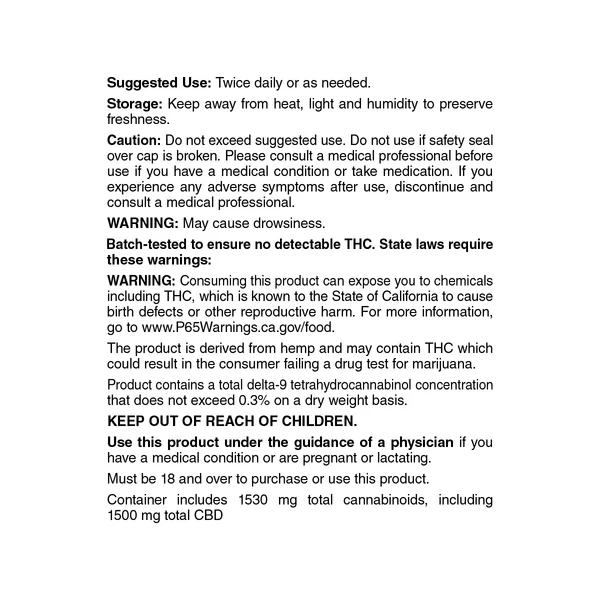
Health Benefits of CBD Oil
One of the main reasons CBD oil has become such a global phenomenon is because of its wide range of potential health benefits. Although research is still ongoing, existing studies and anecdotal reports show promising results across various physical and mental health conditions.
1. Pain Relief and Anti-Inflammatory Properties
CBD oil is widely known for its ability to help manage pain. It interacts with the endocannabinoid system to reduce the perception of pain and inflammation. Several studies suggest that CBD may be beneficial for conditions such as:
-
Arthritis: By reducing joint inflammation, CBD oil may improve mobility and decrease discomfort.
-
Chronic Pain: Many individuals with conditions like fibromyalgia and neuropathy report significant relief with CBD use.
-
Injury Recovery: Athletes often use CBD oil to reduce soreness, muscle pain, and inflammation after workouts or sports injuries.
Unlike conventional pain medications such as opioids, CBD oil does not carry a high risk of addiction, making it a safer long-term option for many people.
2. Stress and Anxiety Relief
In today’s fast-paced world, stress and anxiety are common struggles. Research indicates that CBD oil may help regulate mood and promote relaxation by interacting with serotonin receptors in the brain. Potential benefits include:
-
Reducing Generalized Anxiety Disorder (GAD): Clinical trials have shown CBD can reduce anxiety levels during stressful situations.
-
Improving Social Anxiety: CBD may help individuals feel more at ease in social interactions.
-
Supporting Post-Traumatic Stress Disorder (PTSD): CBD oil has been studied for its potential to reduce nightmares and improve emotional regulation.
Many users report a sense of calm and relaxation shortly after using CBD oil, making it a popular natural alternative to pharmaceuticals like benzodiazepines.
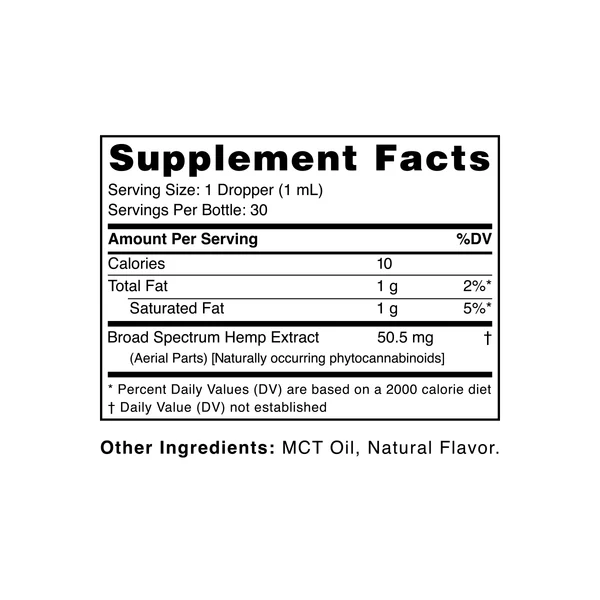
3. Better Sleep Quality
Poor sleep can lead to long-term health problems, including weakened immunity, poor focus, and mood disorders. CBD oil has been studied for its potential to improve sleep by:
-
Reducing anxiety that interferes with sleep.
-
Alleviating chronic pain that disrupts rest.
-
Supporting deeper, more restorative sleep cycles.
Unlike sleeping pills, which can cause dependency, CBD oil offers a natural approach to promoting better rest.
4. Neuroprotective Properties
CBD oil may also play a role in protecting brain health. Studies suggest it has neuroprotective and antioxidant effects, which could be valuable for conditions like:
-
Epilepsy: The FDA-approved medication Epidiolex is derived from CBD and is used to treat certain types of epilepsy in children.
-
Multiple Sclerosis (MS): CBD oil may reduce muscle spasms and improve mobility in MS patients.
-
Parkinson’s and Alzheimer’s Disease: Research is ongoing, but early evidence suggests CBD may help reduce inflammation and protect brain cells.
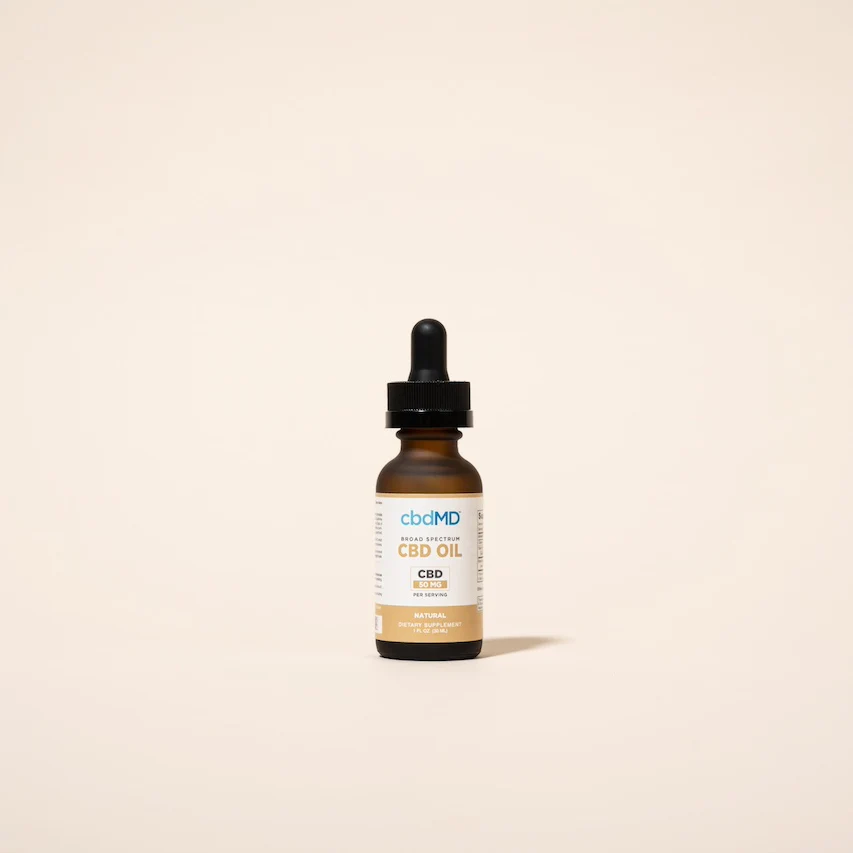
5. Heart Health
CBD oil may contribute to cardiovascular wellness by:
-
Reducing blood pressure levels in stressful situations.
-
Lowering oxidative stress and inflammation.
-
Supporting overall heart function.
These effects are promising, especially as heart disease remains one of the leading causes of death worldwide.
6. Skin Health
CBD oil is not only ingested but also applied topically. Thanks to its anti-inflammatory and antioxidant properties, CBD oil may:
-
Reduce acne by balancing oil production in the skin.
-
Calm irritation and redness in conditions like eczema and psoriasis.
-
Support wound healing and skin hydration.
7. Supporting Mental Wellness
Beyond anxiety, CBD oil may also support broader mental health goals:
-
Enhancing mood stability.
-
Supporting emotional balance during hormonal changes.
-
Offering potential assistance for depression (through serotonin modulation).
Scientific Evidence Behind CBD Oil
While anecdotal evidence has fueled much of CBD’s popularity, scientific research continues to expand, offering more concrete support for its benefits.
-
Epilepsy Research: The approval of Epidiolex demonstrated CBD’s effectiveness in treating severe forms of epilepsy like Dravet Syndrome and Lennox-Gastaut Syndrome.
-
Pain Studies: Multiple animal and human trials confirm CBD’s role in reducing inflammation and chronic pain.
-
Anxiety Research: A 2019 study published in The Permanente Journal reported that 79% of patients experienced reduced anxiety after CBD treatment.
-
Sleep Studies: The same study also found that 66% of participants reported improved sleep quality within the first month of CBD use.
-
Neurodegenerative Disorders: Preclinical research suggests CBD could protect neurons from damage and reduce oxidative stress.
Although further large-scale studies are needed, existing research strongly supports CBD oil’s therapeutic potential.
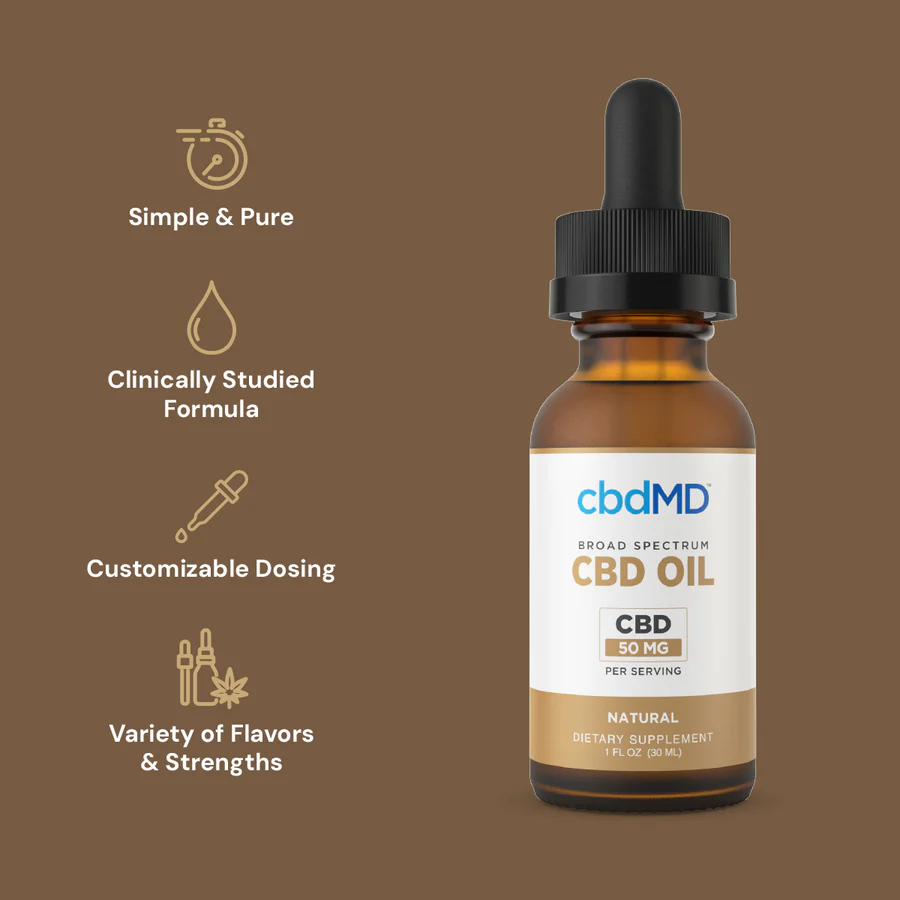
Common Uses of CBD Oil
CBD oil is highly versatile and can be used in several ways, depending on individual needs and preferences.
1. Sublingual Use (Under the Tongue)
Placing CBD oil drops under the tongue is one of the most effective methods for quick absorption. Effects are usually felt within 15–30 minutes and can last for hours.
2. Oral Ingestion
CBD oil can be swallowed directly or infused into foods and drinks. While this method takes longer to work (30–90 minutes), it offers long-lasting effects.
3. Topical Application
CBD-infused creams, balms, and lotions can be applied directly to sore muscles, inflamed joints, or irritated skin.
4. Capsules and Softgels
For those who prefer precise dosages, CBD capsules offer a convenient way to integrate CBD into a daily wellness routine.
5. Vaping and Inhalation
CBD vape oils provide rapid effects, although they may not be suitable for everyone due to potential respiratory risks.
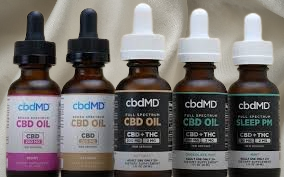
CBD Oil Dosage: How Much Should You Take?
Determining the right dosage of CBD oil can be challenging because it depends on several factors, including body weight, metabolism, the condition being treated, and the concentration of the oil. Unlike pharmaceutical drugs, there is no one-size-fits-all dosage for CBD. Instead, it’s about finding a balance that works for your unique body.
Factors That Influence Dosage
-
Body Weight: Heavier individuals may require higher doses of CBD to experience the same effects as someone lighter.
-
Severity of Condition: People using CBD oil for mild stress may need smaller amounts compared to those managing chronic pain or severe anxiety.
-
Concentration of CBD Oil: Different products have different strengths (e.g., 500 mg, 1000 mg, 3000 mg per bottle).
-
Tolerance and Sensitivity: Some individuals are more sensitive to cannabinoids and may feel effects with lower doses.
-
Method of Consumption: Sublingual use acts faster than edibles, which take longer to digest.
General Dosage Guidelines
-
Beginner’s Dose: Start with 5–10 mg of CBD per day.
-
Moderate Dose: 15–30 mg per day, depending on your body’s response.
-
Higher Dose: 50–100 mg daily, often used for chronic conditions or severe discomfort.
A popular rule is the “start low and go slow” approach. Begin with the smallest effective dose, monitor your body’s response, and gradually increase if needed.
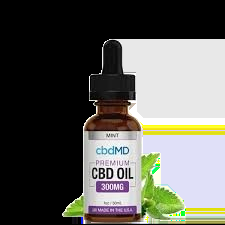
Safety and Side Effects of CBD Oil
While CBD oil is considered safe for most people, it’s essential to understand potential side effects. Fortunately, compared to pharmaceutical alternatives, side effects are generally mild and temporary.
Possible Side Effects
-
Dry Mouth: CBD may reduce saliva production, leading to a dry sensation in the mouth.
-
Drowsiness: Some individuals experience relaxation or mild sedation, especially with higher doses.
-
Digestive Issues: Large amounts may cause nausea, diarrhea, or appetite changes.
-
Interaction with Medications: CBD may interact with drugs like blood thinners, antidepressants, or seizure medications. Always consult a healthcare professional before use.
Who Should Be Cautious?
-
Pregnant or breastfeeding women.
-
Individuals taking prescription medications.
-
People with liver conditions (as CBD is metabolized in the liver).
Despite these cautions, CBD oil is far safer than many pharmaceutical options and does not cause addiction or overdose.

Is CBD Oil Legal?
The legality of CBD oil varies depending on where you live. Understanding the legal framework is crucial before purchasing or using CBD products.
United States
In the U.S., CBD oil derived from hemp containing less than 0.3% THC is federally legal under the 2018 Farm Bill. However, individual states may have additional restrictions, so it’s important to check local regulations.
Europe
Many European countries allow the sale of hemp-derived CBD oil with low THC levels. However, rules differ from one country to another. For example, the UK permits CBD oil as long as it contains no more than 1 mg of THC per container.
Asia and the Middle East
In many Asian and Middle Eastern countries, CBD oil remains illegal or highly restricted due to strict anti-cannabis laws.
Other Regions
-
Canada: CBD oil is legal but regulated.
-
Australia: CBD oil is legal with a prescription.
-
Latin America: Varies by country; some nations allow medical use only.
Always research your region’s specific laws before buying or traveling with CBD oil.
How to Choose the Best CBD Oil
With the growing popularity of CBD, the market is flooded with products of varying quality. To ensure safety and effectiveness, it’s important to choose wisely.
Key Factors to Consider
-
Source of Hemp: Look for CBD oil made from organically grown hemp, free from pesticides and harmful chemicals.
-
Extraction Method: CO₂ extraction is considered the gold standard because it ensures purity and potency without harmful solvents.
-
Type of CBD: Decide between full-spectrum, broad-spectrum, or isolate based on your needs.
-
Third-Party Testing: Reliable brands provide lab reports (Certificates of Analysis) that verify cannabinoid content and confirm the absence of contaminants.
-
THC Content: Ensure the THC level complies with your local laws.
-
Carrier Oil: MCT oil and hemp seed oil are common carriers that enhance absorption.
-
Reputation of the Brand: Check reviews, testimonials, and transparency of the company.
Red Flags to Avoid
-
Products with no lab testing information.
-
Unrealistic health claims such as “CBD oil cures all diseases.”
-
Extremely cheap prices that may indicate poor quality or contamination.
By taking the time to choose carefully, you can maximize the health benefits of CBD oil while ensuring safety.

Different Types of CBD Oil Products
CBD oil is highly versatile, and today’s market offers a wide variety of formats beyond simple tinctures. Each has its pros and cons depending on your lifestyle.
-
CBD Oil Tinctures: Classic dropper bottles, ideal for sublingual use.
-
CBD Capsules and Pills: Convenient for precise dosing and discreet use.
-
CBD Gummies and Edibles: Tasty and enjoyable but slower to take effect.
-
CBD Topicals: Creams, balms, and lotions designed for localized pain relief and skin issues.
-
CBD Vapes: Fast-acting, though not ideal for those with respiratory concerns.
-
CBD Beverages: Infused waters, teas, and coffees offer a creative way to consume CBD.
The best product for you depends on your goals, whether it’s daily wellness, targeted pain relief, or relaxation.
CBD Oil for Specific Conditions
One of the strongest appeals of CBD oil is its versatility in addressing a wide range of health conditions. While it is not a cure-all, research and user experiences highlight several areas where CBD oil can be particularly effective.
CBD Oil for Anxiety and Stress
Anxiety disorders are among the most common mental health issues worldwide. Prescription medications like benzodiazepines often carry risks of dependence and side effects. CBD oil provides a natural alternative that may help regulate stress responses.
-
How It Helps: CBD interacts with serotonin receptors (5-HT1A) in the brain, which play a role in mood regulation.
-
Evidence: Clinical studies show CBD can reduce symptoms of social anxiety and help people feel calmer in stressful situations.
-
Practical Use: Taking a few drops of CBD oil under the tongue before a presentation, meeting, or stressful event may provide relief.
Many people also use CBD oil daily to maintain emotional balance and reduce chronic anxiety levels.

CBD Oil for Pain Management
Chronic pain can be debilitating, often requiring long-term medication. CBD oil offers a promising natural alternative.
-
How It Helps: CBD reduces inflammation and interacts with pain-signaling pathways in the nervous system.
-
Conditions Supported: Arthritis, migraines, fibromyalgia, back pain, neuropathy.
-
Evidence: Research suggests CBD oil may reduce pain intensity and improve quality of life without the addictive risks of opioids.
For localized pain, topical CBD products such as balms or salves can be applied directly to the affected area.
CBD Oil for Sleep Disorders
Sleep problems, whether caused by stress, pain, or irregular routines, are widespread. CBD oil may help restore restful sleep patterns.
-
How It Helps: By reducing anxiety and calming the nervous system, CBD supports better sleep onset and quality.
-
Evidence: Studies show that CBD may improve both REM sleep and deep sleep cycles.
-
Practical Use: Taking CBD oil 30–60 minutes before bedtime may promote relaxation and more restorative sleep.
Many users find that consistent nightly use helps them fall asleep faster and wake up feeling more refreshed.
CBD Oil for Skin Health
Skin conditions like acne, eczema, and psoriasis often result from inflammation or overactive oil glands. CBD oil, when used topically, may support skin health.
-
Anti-Inflammatory Effects: Reduces redness and irritation.
-
Oil Regulation: Helps balance sebum production in acne-prone skin.
-
Antioxidant Properties: Protects against environmental stressors that accelerate aging.
CBD-infused creams and serums are becoming popular in natural skincare routines.
CBD Oil for Neurological Disorders
CBD’s neuroprotective properties are being studied for conditions that affect the brain and nervous system.
-
Epilepsy: Already approved in the form of Epidiolex for rare seizure disorders.
-
Multiple Sclerosis (MS): CBD may reduce muscle spasticity.
-
Parkinson’s and Alzheimer’s: Early studies suggest CBD may protect brain cells and improve quality of life, though more research is needed.
These potential benefits highlight CBD oil’s role in supporting long-term neurological health.
Common Myths and Misconceptions About CBD Oil
Despite its popularity, CBD oil is still surrounded by confusion. Let’s clear up some common myths.
Myth 1: CBD Oil Gets You High
Fact: CBD is non-psychoactive and does not cause intoxication. Only THC produces the “high” associated with cannabis.
Myth 2: CBD Oil Works the Same for Everyone
Fact: Everyone’s body chemistry is different. Some may feel effects quickly, while others may need time and dosage adjustments.
Myth 3: More CBD Equals Better Results
Fact: Higher doses are not always more effective. Often, moderate doses deliver optimal benefits.
Myth 4: CBD Oil is Addictive
Fact: CBD is not addictive and may even help individuals reduce dependence on certain substances.
Myth 5: All CBD Oils Are the Same
Fact: Quality varies greatly. Extraction method, hemp source, and testing standards all impact effectiveness and safety.
By separating fact from fiction, consumers can make more informed choices about using CBD oil responsibly.

Frequently Asked Questions (FAQs) About CBD Oil
1. Is CBD Oil Safe to Use Every Day?
Yes, many people safely use CBD oil daily as part of their wellness routine. However, it’s best to start with a low dose and monitor your body’s response.
2. Can CBD Oil Show Up on a Drug Test?
Pure CBD will not trigger a positive drug test. However, full-spectrum CBD oil contains trace amounts of THC that may accumulate in the body. If drug testing is a concern, choose broad-spectrum or CBD isolate products.
3. How Long Does It Take for CBD Oil to Work?
-
Sublingual use: 15–30 minutes.
-
Edibles/capsules: 30–90 minutes.
-
Topicals: 15–45 minutes (localized effects).
4. Can I Travel with CBD Oil?
It depends on the country or state. In regions where CBD is legal, travel is typically fine, but always check local regulations to avoid legal issues.
5. How Do I Store CBD Oil?
Store CBD oil in a cool, dark place away from direct sunlight. Proper storage extends shelf life and maintains potency.
6. Can Pets Use CBD Oil?
Yes, specially formulated CBD oils for pets can support anxiety, pain, and joint health in animals. Always use pet-safe products with appropriate dosing.
Final Thoughts: Should You Try CBD Oil?
CBD oil represents a natural, versatile, and increasingly well-researched approach to health and wellness. From managing stress and pain to supporting sleep and skin health, it offers potential benefits for a wide variety of conditions. While it’s not a miracle cure, it can play an important role in a balanced lifestyle when chosen carefully and used responsibly.
As research continues, the future of CBD oil looks promising. For individuals seeking natural support without the risks of dependency or heavy side effects, CBD oil may be worth exploring.
Whether you are a beginner curious about its effects or someone seeking alternatives to traditional medications, CBD oil could become a valuable addition to your health journey.
CBD Oil Buying Guide: Step-by-Step for Beginners
With so many CBD products on the market, it’s easy to feel overwhelmed. Here’s a simple guide to help you choose high-quality CBD oil confidently.
Step 1: Define Your Goals
-
Do you want CBD for stress relief, pain management, or better sleep?
-
Your goal determines the best type (e.g., full-spectrum for holistic effects, isolate for zero THC).
Step 2: Check the Source of Hemp
Look for CBD oil derived from organically grown hemp. Hemp absorbs everything from the soil, including toxins, so organic farming ensures purity.
Step 3: Understand the Extraction Method
-
CO₂ extraction: Cleanest, most effective method.
-
Ethanol extraction: Safe but less refined.
-
Avoid cheap solvent methods that may leave harmful residues.
Step 4: Review Third-Party Lab Reports
Reputable brands provide a Certificate of Analysis (COA), showing cannabinoid content and confirming the absence of pesticides, heavy metals, and contaminants.
Step 5: Choose the Right Strength
-
Low Strength (300–600 mg): Best for beginners and mild concerns.
-
Medium Strength (1000–1500 mg): Suitable for moderate stress, anxiety, or pain.
-
High Strength (2000–3000 mg+): Often used for chronic pain or severe symptoms.
Step 6: Compare Brands and Reviews
Check customer testimonials, online ratings, and brand transparency. Avoid companies that make unrealistic claims like “CBD cures cancer.”
Step 7: Start with a Trial Size
If you’re new to CBD oil, start small. A 30 ml bottle is usually enough to test your body’s response before committing to larger purchases.
CBD Oil vs. THC Oil vs. Hemp Oil
There is often confusion between CBD oil, THC oil, and hemp oil. While all come from the cannabis plant, they differ in composition and effects.

CBD Oil
-
Extracted from hemp (low THC).
-
Non-psychoactive.
-
Supports wellness, pain relief, and relaxation.
THC Oil
-
Extracted from marijuana (high THC).
-
Psychoactive—causes a “high.”
-
Legal only in certain states or countries with cannabis laws.
Hemp Seed Oil
-
Extracted from hemp seeds (no cannabinoids).
-
Rich in omega-3 and omega-6 fatty acids.
-
Great for nutrition and skincare but doesn’t contain CBD.
Key Takeaway: If you’re looking for therapeutic benefits without intoxication, CBD oil is the right choice.
The Future of CBD Oil and Industry Trends
The CBD industry has experienced explosive growth, and experts predict it will continue to expand in the coming years.
1. Increased Scientific Research
As governments loosen restrictions, more clinical studies are being conducted. Future findings may reveal new therapeutic uses for CBD oil.
2. Personalized CBD Products
We are beginning to see CBD products tailored to individual needs—like sleep formulas with added melatonin or focus blends with adaptogens.
3. Integration into Mainstream Healthcare
Doctors and wellness practitioners are increasingly open to recommending CBD as a complementary therapy, especially for chronic conditions.
4. Expansion of CBD in Beauty and Skincare
The cosmetic industry is embracing CBD for its anti-inflammatory and antioxidant properties, with serums, face creams, and shampoos becoming popular.
5. Growth of CBD for Pets
Pet-specific CBD oils are gaining popularity as natural alternatives for anxiety, arthritis, and overall wellness in dogs and cats.
6. Stricter Regulations and Quality Standards
As demand rises, governments are expected to impose stricter rules to protect consumers from low-quality products. This will push the industry toward greater transparency.
Tips for First-Time Users of CBD Oil
If you’re new to CBD oil, keep these practical tips in mind:
-
Start Low and Slow: Begin with the lowest dose and increase gradually.
-
Consistency is Key: Take CBD oil daily for best results, as effects build over time.
-
Track Your Progress: Keep a journal of your dosage, timing, and effects.
-
Choose Quality Over Price: Don’t compromise on purity and safety for a cheaper product.
-
Consult a Doctor: Especially if you’re taking medications or have existing health conditions.

Conclusion: Embracing the Power of CBD Oil
CBD oil has emerged as one of the most exciting natural wellness solutions of our time. Backed by a growing body of research and millions of satisfied users worldwide, it offers potential benefits for pain relief, anxiety reduction, better sleep, skin health, and overall well-being.
While it’s not a miracle cure, CBD oil stands out as a safe, non-addictive, and versatile tool for supporting a healthier lifestyle. Whether you’re seeking relief from chronic issues or simply looking for a natural supplement to enhance your daily wellness, CBD oil deserves your attention.
As the industry continues to evolve, with improved quality standards and more scientific validation, the future of CBD oil looks brighter than ever. By making informed choices and using it responsibly, you can experience the many potential benefits of this remarkable plant-based remedy.
